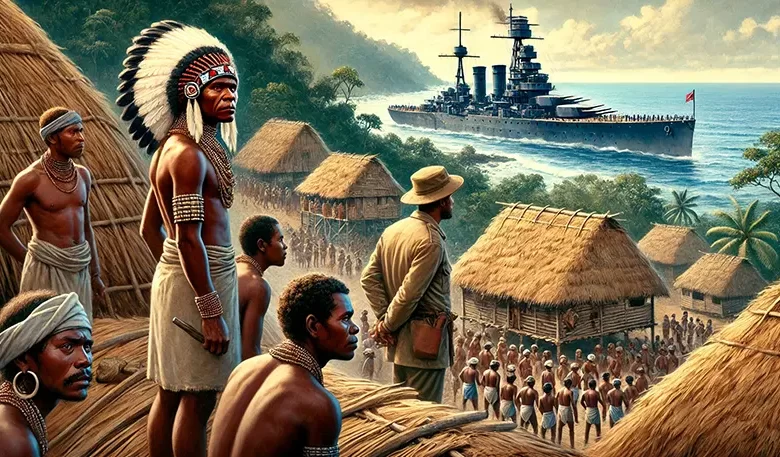Carib War, Kalinago

The Carib War, also known as the Kalinago Uprising of 1930, was a significant event in Dominica’s history. It marked a resistance movement by the Kalinago people against British colonial forces. The conflict arose due to tensions between the colonial administration and the Kalinago, who struggled to maintain their traditional ways of life amidst increasing colonial control. The British colonial officer Edward Carlyon Eliot played a significant role during this period, as he was responsible for enforcing British policies that exacerbated tensions.
Carib War: Causes and Events
The uprising sparked a crackdown on the Kalinago trade practices with neighbouring French islands, such as Marie Galante and Martinique. The British authorities, seeking to curb illegal trade, imposed stricter controls, which heightened tensions. On September 19, 1930, a confrontation escalated when the British sent the HMS Delhi to the Carib Reserve, using military force to quell the unrest. The Kalinago, unprepared for such an assault, fled into the surrounding forests for safety.
The Carib War highlighted the Kalinago people’s resilience and determination to resist colonial oppression. Although the uprising was eventually suppressed, it drew attention to the Kalinago’s plight and struggle for autonomy and rights. The event is commemorated today as a symbol of resistance and is integral to Kalinago history.
Anthropologist Douglas Macrae Taylor later documented these events, providing a detailed account of the Kalinago’s resistance and the socio-political dynamics of the time.
Efforts to preserve and honour this history continue, as seen through cultural initiatives and the work of the Kalinago Council, which strives to maintain the Kalinago’s cultural heritage and improve living conditions within the Kalinago Territory. The Carib War remains a poignant reminder of the challenges faced by indigenous communities and their enduring fight for self-determination.




